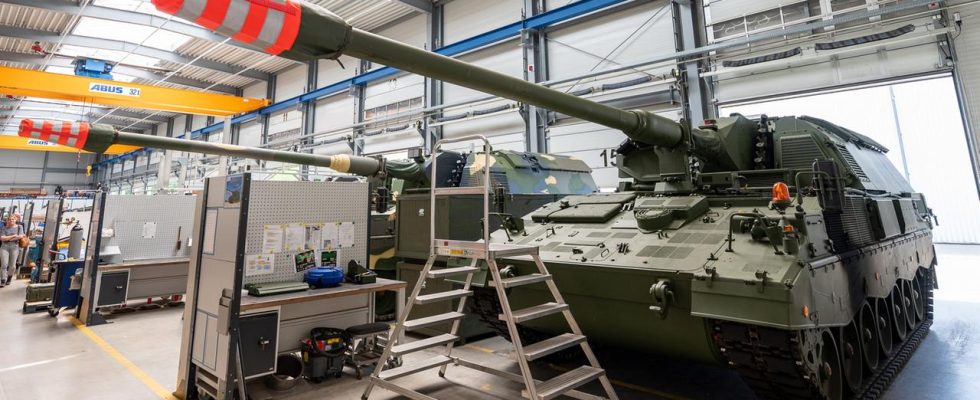European arms production and more independence from the USA – this is what the EU’s new defense strategy is aimed at. This is intended to strengthen the internal market. Ukraine also plays a role in this.
A massive expansion of European arms production and less dependence on the USA: These are the goals of the new defense strategy that the EU Commission presented in Brussels. “We must take more responsibility for our own security,” warned Vice Commission President Margrethe Vestager – regardless of whether Donald Trump becomes US President again.
Ambitious goals
The legislative proposal for a European Defense Industry Program stipulates that the member states should set the goal of spending at least 50 percent of the funds planned for the procurement of defense equipment on the European internal market by 2030. By 2035 it should be 60 percent.
According to EU Competition Commissioner Vestager, almost 80 percent of the funds currently flow to countries outside the EU and 60 percent to the USA alone. “This is no longer sustainable, if it ever was sustainable.”
“Totally loyal to NATO”
Vestager said the EU must take more responsibility for its own security. The Europeans remained “completely loyal to NATO,” she assured.
“After decades of underspending, we need to invest more in defense, but we need to do it better and together,” said EU foreign policy chief Josep Borrell.
“We spend three times as much on defense as Russia,” criticized Internal Market Commissioner Thierry Breton, who is also responsible for defense. EU Commission President Ursula von der Leyen added in the online service
Program as a consequence of the Russian war of aggression
The intention to strengthen the European arms industry is also a consequence of the Russian war of aggression against Ukraine. It says this made the military and industrial deficits of the Europeans clear. A future focus should be on expanding the production of drones.
The Commission’s proposals also include financial incentives: If EU countries join forces on defense projects, they should be relieved of the additional costs. The goal should be to procure 40 percent of the equipment through collaboration by 2030.
The Commission initially wants to mobilize 1.5 billion euros from the EU budget framework until 2027 for the plans. This is far from enough, Vestager admitted. However, the money could serve as an incentive for investment by member states.
Ukraine should also benefit
Not only the EU should benefit from the Commission’s plans, but also Ukraine. It should be integrated into the armaments plans “virtually like a member state,” as an EU official said. The cooperation in artillery ammunition, where a joint procurement initiative has already been in place for almost a year, will serve as a model for this.
The governments of the member states must now discuss the Commission’s proposals. It is still unclear whether they will receive support.

